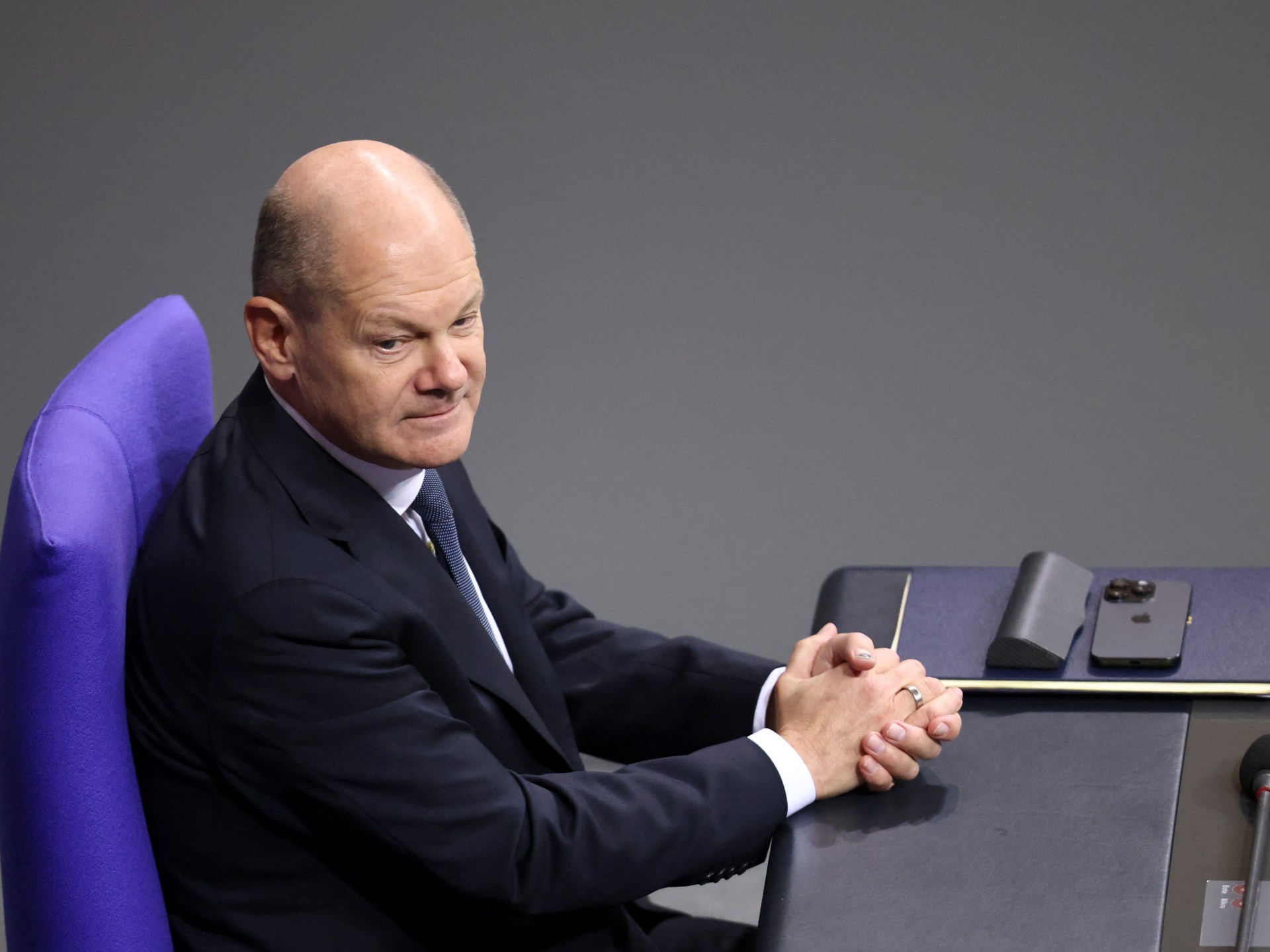Germany set for new elections after Chancellor Scholz loses confidence vote
 16 December 2024
16 December 2024


German Chancellor Olaf Scholz has lost a confidence vote in parliament, triggering snap elections seven months ahead of schedule.
The vote on Monday came after Scholz’s fragile coalition collapsed, sparking a political crisis in the European Union’s largest economy.
Scholz won the support of 207 lawmakers in the 733-seat lower house, or Bundestag, while 394 members voted against him and 116 abstained. That left him far short of the majority of 367 needed to win.
The elections for a new parliament will take place on February 23.
The governing coalition, which had consisted of three political parties, was shaken when Scholz fired Finance Minister Christian Lindner in November.
Lindner’s pro-business Free Democrats then quit the coalition government, robbing Scholz of a majority in parliament.
Scholz’s centre-left Social Democrats (SPD) and the Greens will continue running the country without parliamentary backing until a new government is formed.
Monday’s move came after months of infighting over fiscal priorities and debt spending.
Advertisement
Earlier this month, a hung parliament in neighbouring France toppled the country’s prime minister with no confidence vote.
The crisis in France prompted President Emanuel Macron to name centrist politician Francois Bayrou as new prime minister without triggering a new election. But it highlighted the intensifying political rifts in EU countries amid economic uncertainty and the war in Ukraine.
In Germany, Scholz – who previously served as mayor of Hamburg and finance minister before becoming the head of a new government in 2021 – accused the Free Democrats of wanting to block investment in the country.
Seen as a continuity candidate when he took over from Angela Merkel three years ago, he has
framed next year’s election as an opportunity for voters to set a new course, casting the vote as a
choice between a future of growth versus one of austerity.
If he is given a second term, Scholz said he would invest heavily in Germany’s creaking infrastructure and would not make the spending cuts he said the conservatives want.
Scholz and the leader of the conservative Christian Democratic Union, Friedrich Merz, who polls suggest is likely to be the next chancellor, clashed in a debate before Monday’s vote, accusing each other of incompetence.
“Shortsightedness might save money in the short term, but the mortgage on our future is unaffordable,” Scholz told lawmakers.
Merz told Scholz that his spending plans would burden future generations and accused the chancellor of failing to deliver on promises of rearmament since Russia’s invasion of Ukraine.
Advertisement
The conservative leader has been a vocal backer of giving Ukraine German-made Taurus missiles, which could be used to strike targets inside Russia.
Scholz, by contrast, has refused to supply them to Kyiv, suggesting that such moves could plunge Berlin into a fiercer conflict with with Moscow.
Both Scholz and Merz are staunch supporters of Israel. Germany is one of the top suppliers of weapons to Israel, which has been accused by rights groups of carrying out a genocide in Gaza.
Ahead of the February vote, the conservatives have a comfortable, albeit narrowing lead of more than 10 percentage points over the SPD in most polls.
The far-right Alternative for Germany (AfD) is slightly ahead of Scholz’s party while the Greens are in fourth place.
The mainstream parties have refused to govern with the AfD, but its presence complicates parliamentary politics, making unwieldy three-way coalitions like Scholz’s more likely.
Meanwhile, the chancellor has outlined a list of urgent measures that he could pass before the elections, including 11 billion euros ($11.6bn) of tax cuts and an increase in child benefits.
Related News

Israel seizes buffer zone in Syria’s Golan Heights after al-Assad falls

Russia-Ukraine war: List of key events, day 1,017

Israeli strikes on Gaza kill dozens as Hamas official says talks resume
